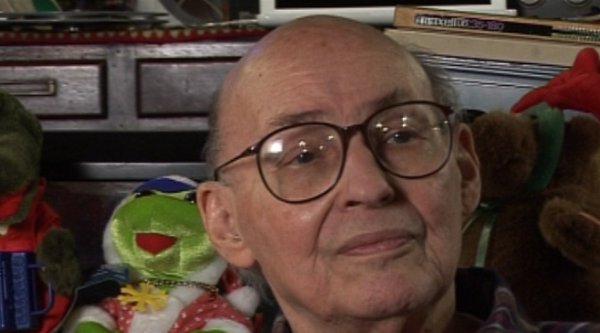NEXT STORY

Will machines ever understand Aesop's fables?
RELATED STORIES

NEXT STORY

Will machines ever understand Aesop's fables?
RELATED STORIES


|
Views | Duration | |
|---|---|---|---|
| 71. Freeman Dyson proves what I couldn't | 4604 | 03:17 | |
| 72. Solving Emil Post's problem | 3565 | 03:00 | |
| 73. Solving Post's unsolvable problem leads to the 'Minsky Machines' | 1 | 3400 | 03:49 |
| 74. Andrew Gleason's eight year plan of attack | 3215 | 03:40 | |
| 75. 'You can pull something with a string, but not push it' | 3055 | 02:02 | |
| 76. Will machines ever understand Aesop's fables? | 3001 | 00:51 | |
| 77. Analogy is the difference between human and computer thinking | 2 | 3143 | 05:07 |
| 78. Developing ideas of intelligence in the 1960s | 2647 | 02:01 | |
| 79. Unexpected problems with language machines | 2666 | 00:50 | |
| 80. The history of the laws of physics | 2858 | 02:44 |


Right. OK, well I told this little story of the attempts to make programs that do mathematics, so that’s sort of the strange backwards evolution where, in 1961, the student James Slagle made a program that could do integration, as well as a good college student, and then Daniel Bobrow, another graduate student, made the program that was pretty good at some high school algebra problems and... while all this was going on, there was also a series of attempts to make programs that could prove theorems in Euclidian geometry, so that... that had a nice history going back to around 1958.
So we have these rather advanced subjects, at least as a typical public citizen would see it... doing calculus or algebra is pretty exceptional, but we don’t have a system that understands enough about the real world to... to know that you can pull with a string – my favorite example – but... but you can’t push or... knows that normally people don’t like to get wet, so they... if they’re going out in the rain they’ll probably get an umbrella, but they won’t take an umbrella when they go swimming, because then.. then they want to get wet or they don’t mind it.
Marvin Minsky (1927-2016) was one of the pioneers of the field of Artificial Intelligence, founding the MIT AI lab in 1970. He also made many contributions to the fields of mathematics, cognitive psychology, robotics, optics and computational linguistics. Since the 1950s, he had been attempting to define and explain human cognition, the ideas of which can be found in his two books, The Emotion Machine and The Society of Mind. His many inventions include the first confocal scanning microscope, the first neural network simulator (SNARC) and the first LOGO 'turtle'.
Title: 'You can pull something with a string, but not push it'
Listeners: Christopher Sykes
Christopher Sykes is a London-based television producer and director who has made a number of documentary films for BBC TV, Channel 4 and PBS.
Tags: 1961, Daniel Bobrow, James Slagle
Duration: 2 minutes, 3 seconds
Date story recorded: 29-31 Jan 2011
Date story went live: 12 May 2011